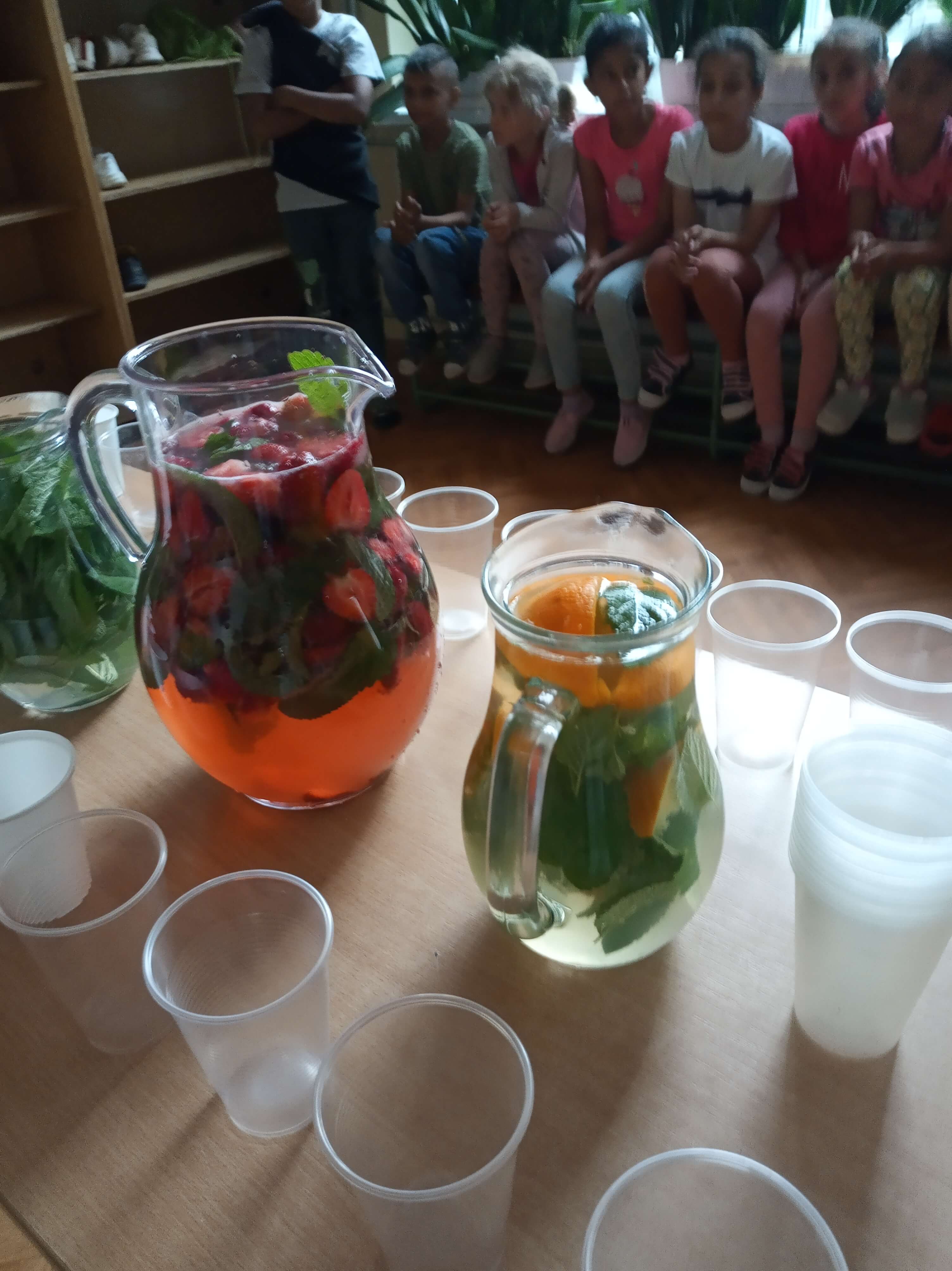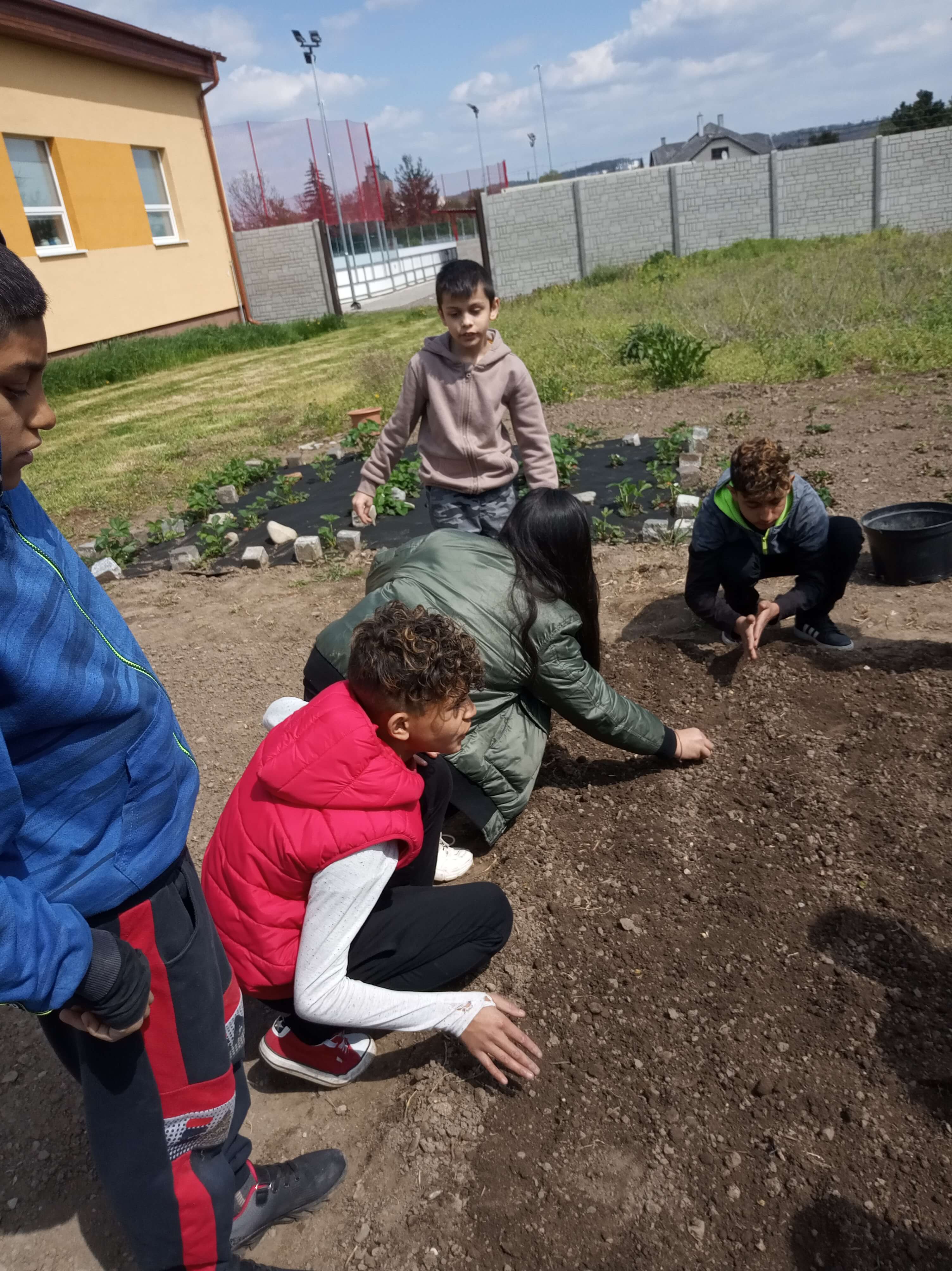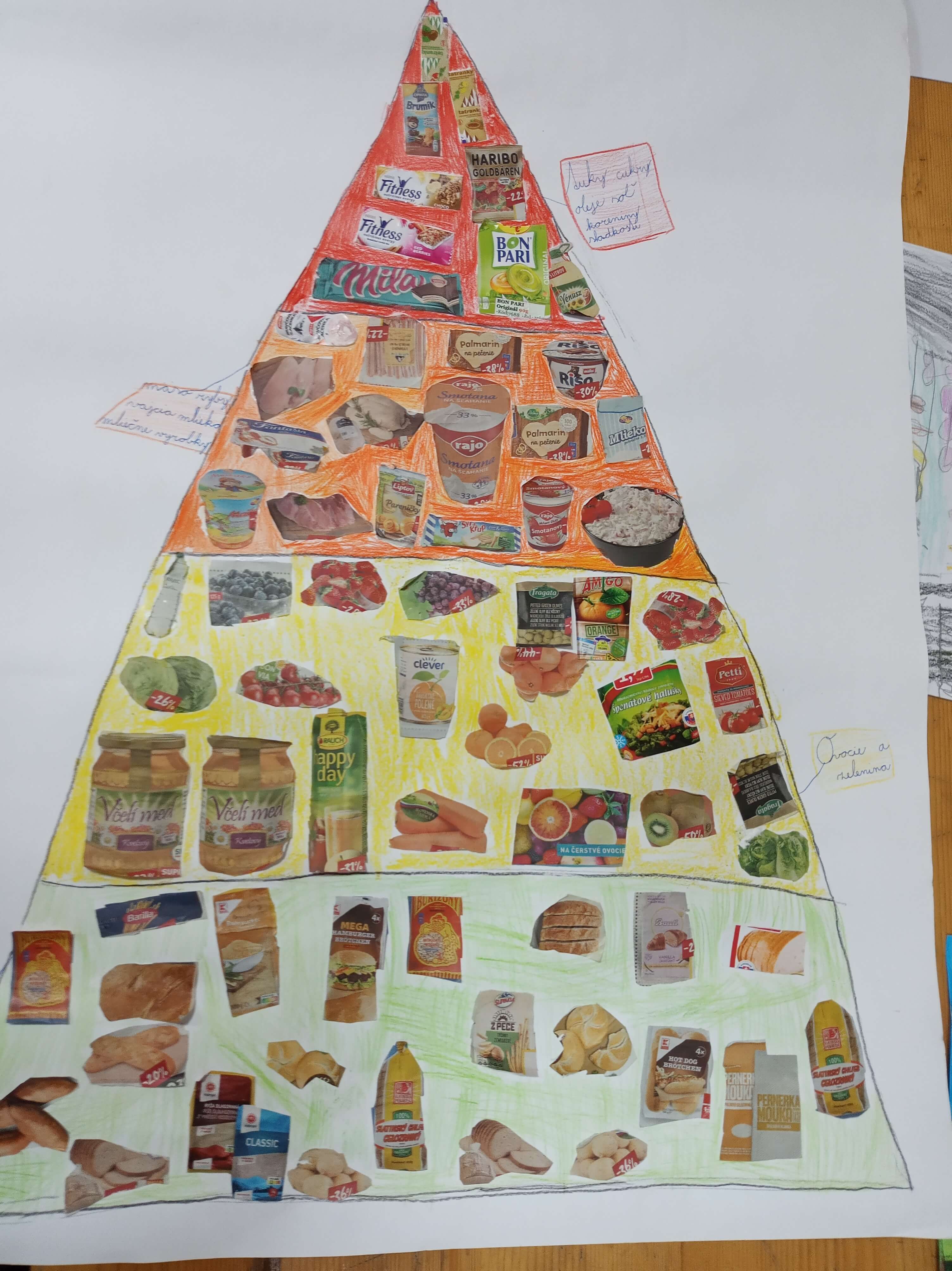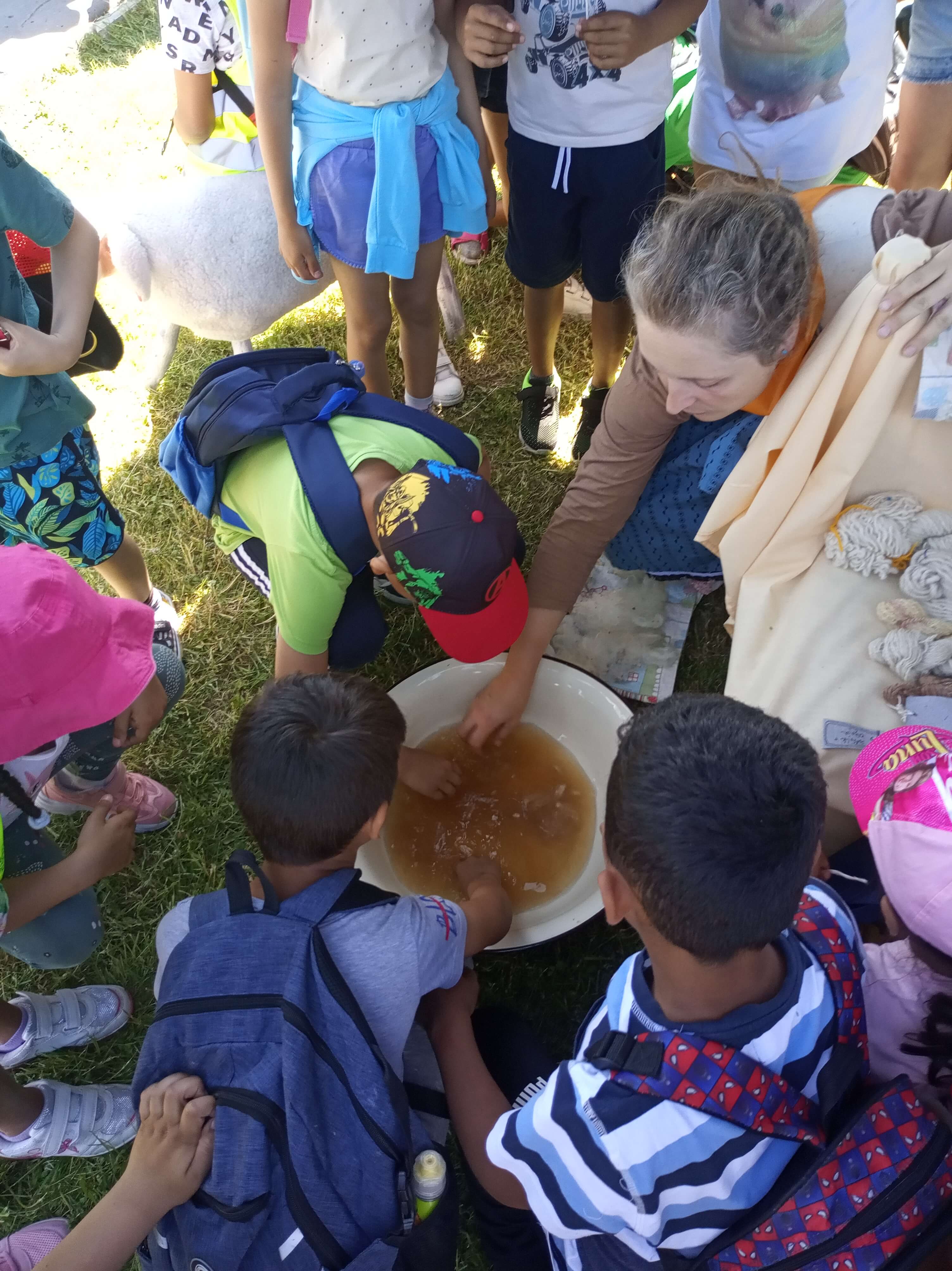At the annual SchoolFodo4Change (SF4C) consortium meeting held in Vienna in October 2023, a poster exhibition showcased good practices from SF4C participating schools all over Europe. Among the numerous inspiring entries, one poster presented a very special practice case and was thus honored to be featured on the SchoolFood4Change website: the poster from Elementary School Kukučínová in Vranov nad Topľou, Slovakia. Their winning concept? “Turning disadvantage into an advantage.”
The Elementary School Kukučínová is situated in an area with a high cultural diversity. The school faced challenges in involving parents in their children’s healthy and sustainable food habits due to cultural and traditional differences in eating habits. However, step-by-step, the school managed to turn this challenge into an opportunity by leveraging the influence of children on their families.
The school’s primary aim was to enhance students’ understanding of the value of food and use this knowledge to influence behavior and mindsets outside of school, particularly within their families. With this goal in mind, they implemented a range of activities to educate their students, such as field trips to local farms, cooking classes, and even a “Bee Day” to learn about honey production.
Examples of activities or practices that have been arranged:
- Organising field trips to farmers in the local area
- Setting up of a small vegetable garden on the school grounds, taking the pupils closer to the food, which has also encouraged the students to try new foods
- Serving fresh fruits and vegetables to the students every day, using this as an opportunity to familiarize them with different types of produce
- Cooking club and cooking classes where the pupils can participate in food preparations
- Offering students the possibility to prepare their own snacks using the self-harvested fruit and vegetables
- Introducing new flavors to the students by using lemon or herbs to flavor water
- Arranging a “Bee day”, an activity for the pupils to engage with a beekeeper and learn more about the process of making honey
- Encouraging the pupils to bring the harvested vegetables home with them, and also to take home seeds to try out farming at home
- Spreading knowledge of what to think about when grocery shopping, for example how to choose the food, but also how to properly store items at home
- Providing students with different recipes to try out at home
The school’s approach is unique: “For most of our pupils, it is not normally the parent that educates, but rather the child that influences the mindset and attitudes of the parents.” explained Zdenka Lukacinova and Tatiana Lukacova from the Elementary School Kukučínová. This realization led the school to strategically build on the students’ ability to influence their parents and their environment.
The results have been promising. The school has seen significant improvements in the students’ interest and knowledge about food. The Whole School Food Approach has been especially helpful tool in this process, as the broad framework covers the most important aspects to be considered when aiming to achieve a more sustainable school food system.
“Thanks to our pupils, the information [about healthy and sustainable food consumption] reaches their families, and they influence their loved ones in a good and persistent way,” said Zdenka Lukacinova and Tatiana Lukacova.
The school’s advice to other schools, headmasters and teachers working under similar conditions is to have patience, to take small steps at a time, and to believe in the power of a child to influence a parent.
As for the future, the Elementary School Kukučínová has many plans and ideas, which they hope to implement when the right time and resources come. They believe in achieving change and a better future for their students and their surrounding community. The school is eager to continue its involvement in projects that foster their goal of a more sustainable school food system.
The Elementary School Kukučínová, with 22 classes across two grades and a total of 465 students, serves as a good example of how schools can play a pivotal role in fostering sustainable food habits in their communities. Despite the challenges, they continue to strive towards increasing the number of students eating in the school canteen every day.



